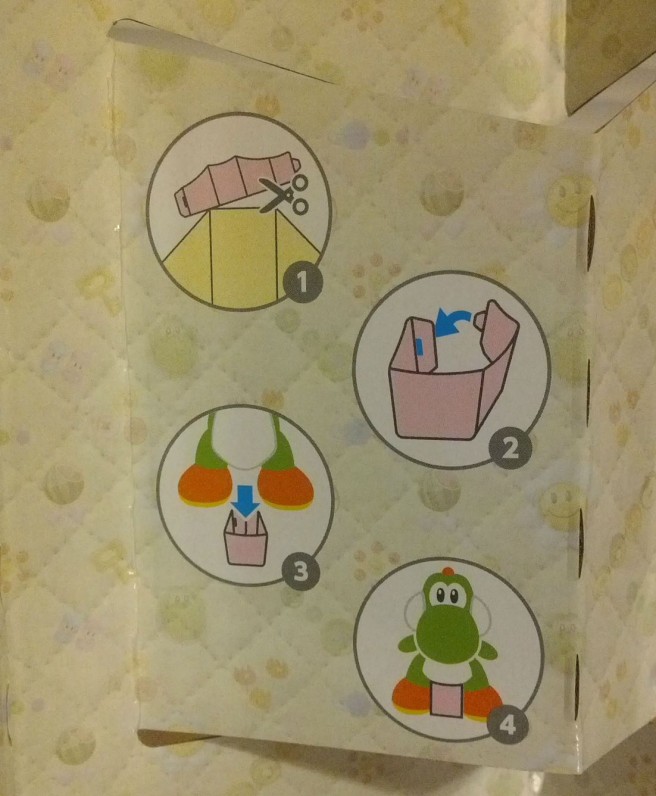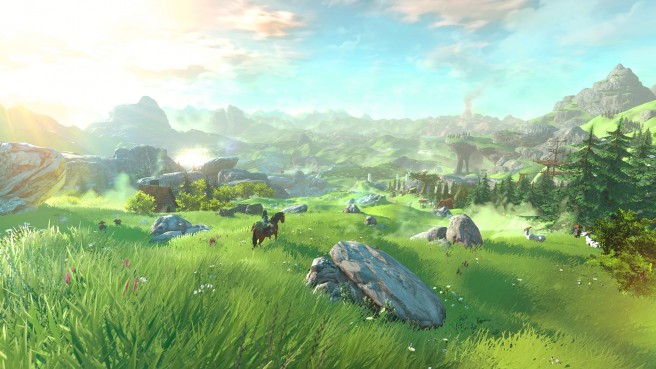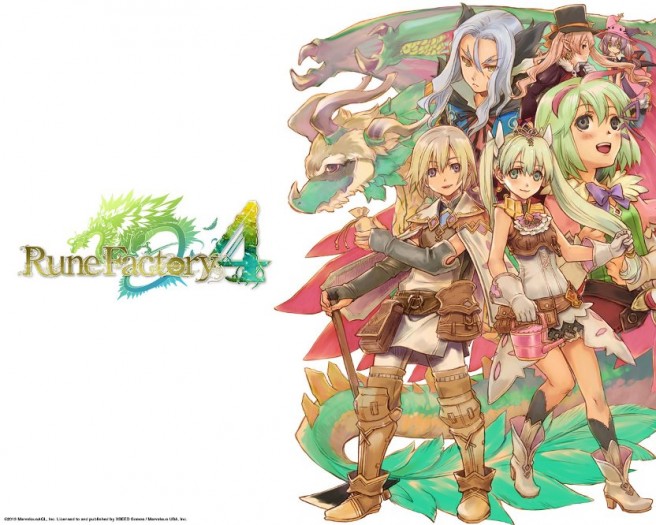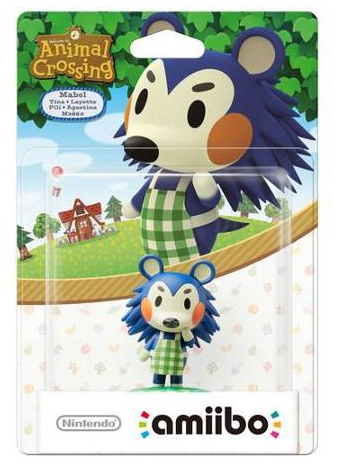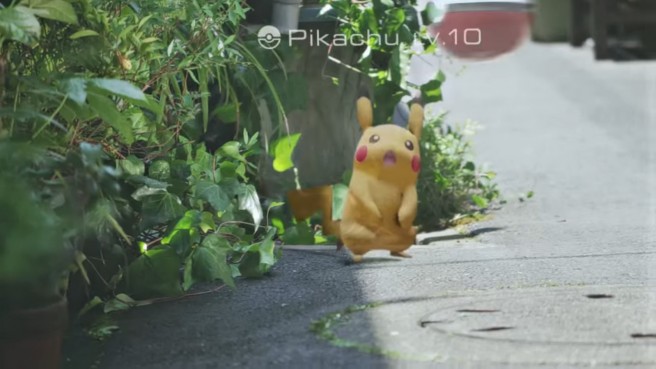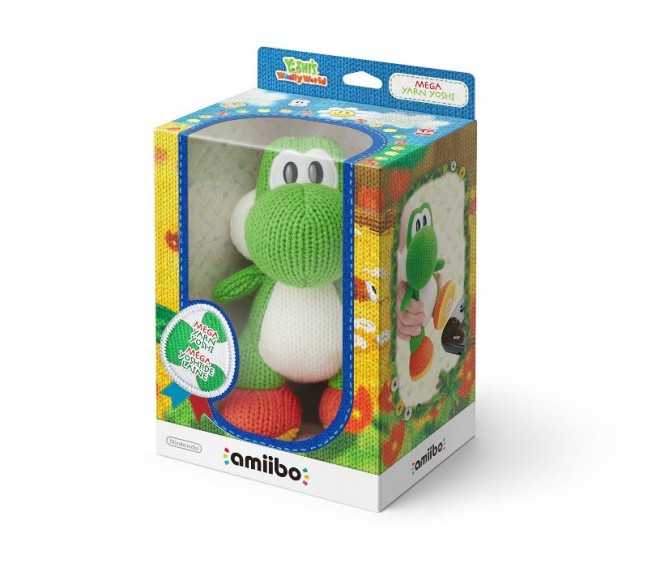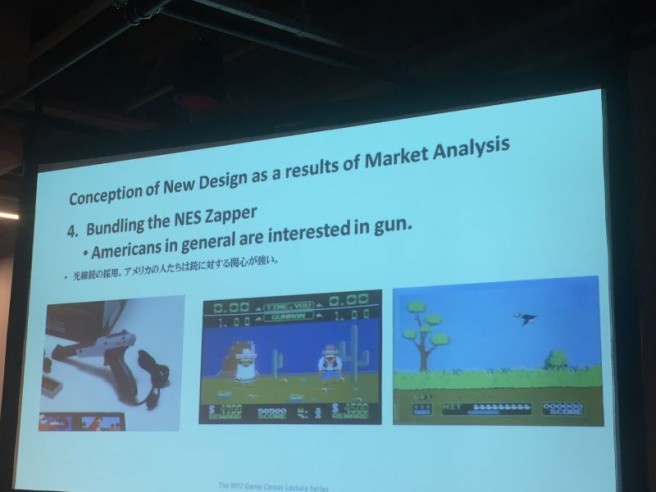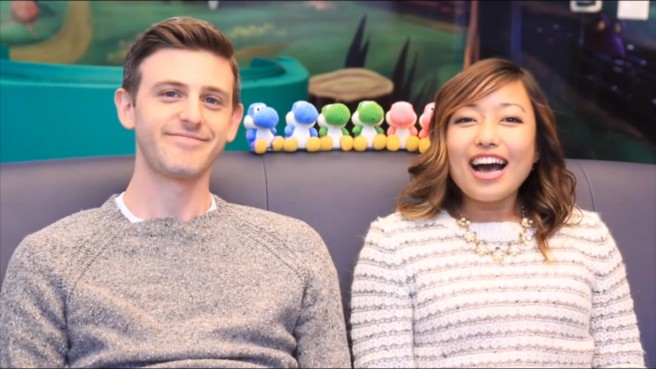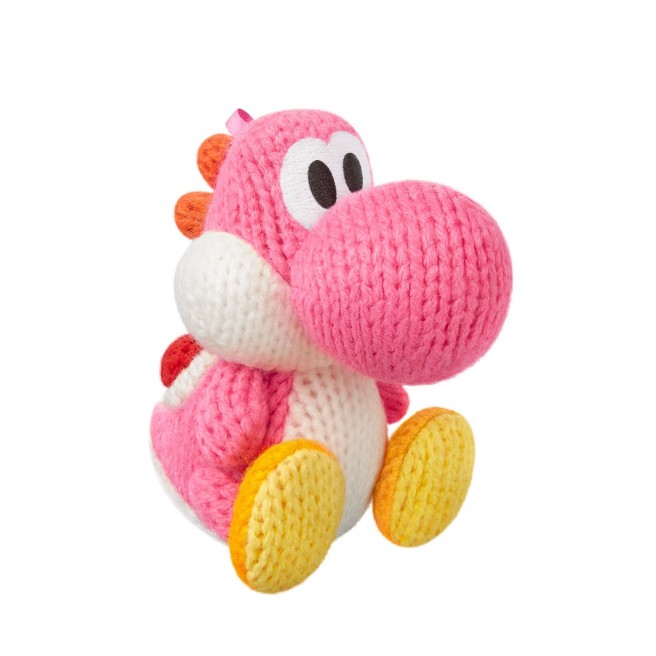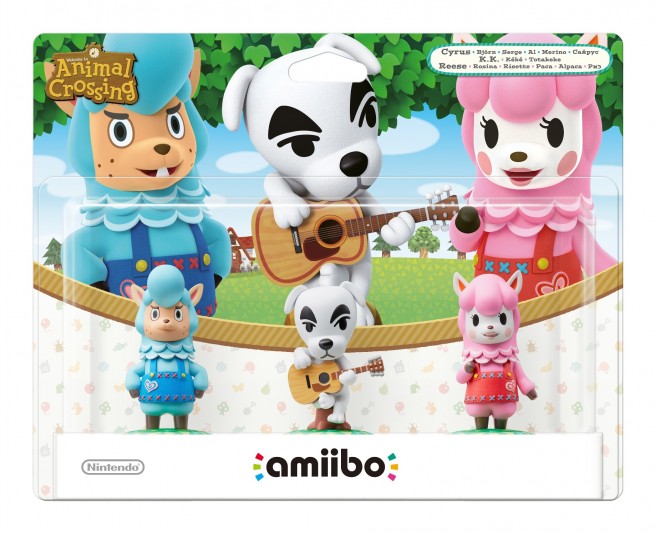Mega Yarn Yoshi amiibo comes with a cut-out stand
Posted on 10 years ago by Brian(@NE_Brian) in General Nintendo, News | 5 Comments
The Mega Yarn Yoshi amiibo packaging comes with a small extra. Inside the box, you can cut out a stand that can be used to help the plushie stand upright. Yoshi might be just fine on its own, but some owners may find that the stand comes in handy.
There are also photos floating around comparing the Mega Yarn Yoshi to the other Yoshi amiibo and figures. We’ve posted those below.
More: Amiibo
Final Fantasy XV director points to Zelda as a franchise he’d like to work on
Posted on 10 years ago by Brian(@NE_Brian) in General Nintendo, News | 85 Comments
In one of its issues earlier this month, Dengeki PlayStation spoke with a ton of recognized game creators ranging from Keiji Inafune to Tetsuya Nomura. This feature was published to celebrate the magazine’s 600th issue.
One of the developers Dengeki PlayStation reached out to was Final Fantasy XV director Hajime Tabata. To start out with, Tabata was asked which company’s title he would like to work on as a member of their staff. Here’s how he responded:
“The Legend of Zelda series. I’m not quite sure why myself, but a Zelda game made with the technology and know-how of Final Fantasy XV is the game I wish to create as of this moment.”
Of course, you shouldn’t make too much of Tabata’s words – it was just a harmless comment after all! Still, it’s an interesting choice on his part. It almost makes you wonder what a Square Enix-made Zelda game would look like.
More: Hajime Tabata, interview, Square Enix, The Legend of Zelda, top
XSEED says Marvelous is thinking about how to keep the Rune Factory series going
Posted on 10 years ago by Brian(@NE_Brian) in General Nintendo, News | 2 Comments
Rune Factory 4 came out in Japan back in 2012, and a year later in North America. That was the final game developed by Neverland before the studio closed its doors – though some members of the team were absorbed into Marvelous for Lord of Magna: Maiden Heaven’s creation.
Although there hasn’t been any sort of news about a new Rune Factory entry over the past couple of years, XSEED Games executive VP Ken Berry told Destructoid that there have been discussions about how to keep the franchise alive. Parent company Marvelous is also aware that “fans are clamoring for a sequel and are looking for ways to make it happen.”
Berry said:
“There are continuing discussions on how to keep the Rune Factory series going, despite Neverland, the original developers, no longer being around. Hopefully, something will come of that in the not too distant future, because Rune Factory 4 was the best-selling title in the series, I believe, and it’s a series that’s been growing and growing over the years. Marvelous knows fans are clamoring for a sequel and are looking for ways to make it happen.”
More: interview, Ken Berry, marvelous, Rune Factory 4, XSEED Games
Walmart taking pre-orders for the Mabel amiibo
Posted on 10 years ago by Brian(@NE_Brian) in General Nintendo, News | 0 comments
Pre-orders for the Mabel amiibo are now live on Walmart. Get yours here. Chances are that it won’t be available for too long!
Niantic on what it’s like working with Nintendo
Posted on 10 years ago by Brian(@NE_Brian) in General Nintendo, Mobile, News | 0 comments
Niantic is the main developer behind Pokemon Go. Additionally, Nintendo and The Pokemon Company are heavily involved with the project.
Niantic CEO John Hanke recently spoke with TechCrunch and talked about what it’s like working with the Big N. He said:
“Terrific. It’s an honor to have the support and insights of a company that has brought decades of joy to people through their IP, game design, technology innovation. They share our same values of using innovation and play to bring people together. We have so much respect for Nintendo, as well as The Pokémon Company and of course Google. We couldn’t ask for a better group of companies.”
A couple of days ago, it was announced that Nintendo, The Pokemon Company, and Google are investing $20 million in Niantic. This will allow the developer to continue work on Pokemon Go and expand the company overall.
Mega Yarn Yoshi amiibo unboxing
Posted on 10 years ago by Brian(@NE_Brian) in General Nintendo, Videos | 2 Comments
The Mega Yarn Yoshi amiibo began to hit stores in Canada yesterday. In the video below, you can see the plushie being unboxed.
NES designer explains the front-loading slot, why the Zapper was bundled in
Posted on 10 years ago by Brian(@NE_Brian) in General Nintendo, News | 9 Comments
Masayuki Uemura, a lead designer of the Nintendo Entertainment System, held a presentation at New York University’s Game Center last night. Uemura shared a couple of interesting insights that I wanted to relay here.
First, the front-loading slot was implemented since VHS systems were popular in the mid-190s. The team wanted to make the NES to take on a somewhat similar appearance. Uemura also commented on why the Zapper was bundled in: because Americans loved guns, apparently!
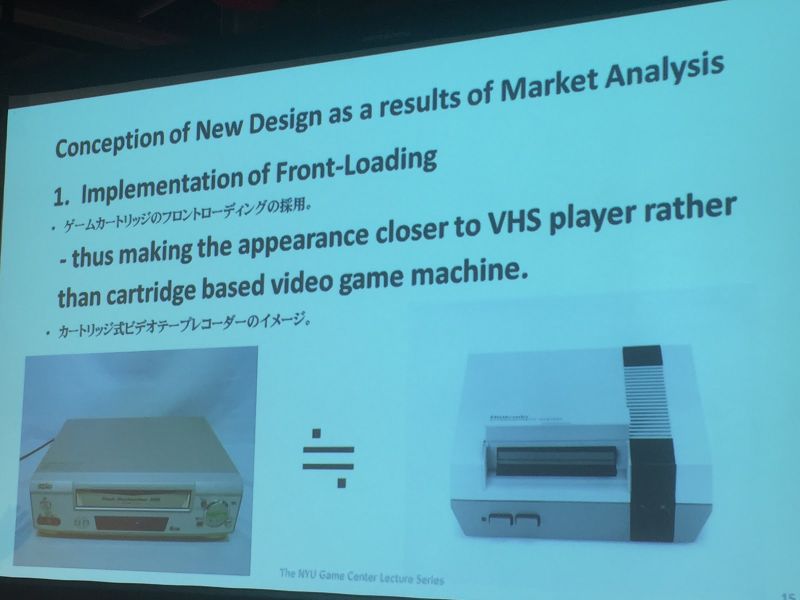
More: Masayuki Uemura, top
Nintendo Minute – “Yoshi’s Woolly World Let’s Yarn!”
Posted on 10 years ago by Brian(@NE_Brian) in General Nintendo, Videos, Wii U | 0 comments
Today’s episode of Nintendo Minute is all about Yoshi’s Woolly World – hardly a surprise since the game has now launched in North America. In the video below, Kit and Krysta show off two levels.
Yarn Yoshi amiibo will be on Amazon in a few hours
Posted on 10 years ago by Brian(@NE_Brian) in General Nintendo, News | 0 comments
Amazon will begin taking orders for the Yarn Yoshi amiibo later today. You’ll want to keep track of this link for the pink version and this page
for the blue version.
They’ll be up at the following times:
Pink Yarn Yoshi
- 1:00pm PT
- 2:00pm MT
- 3:00pm CT
- 4:00pm ET
Blue Yarn Yoshi
- 2:00pm PT
- 3:00pm MT
- 4:00pm CT
- 5:00pm ET
